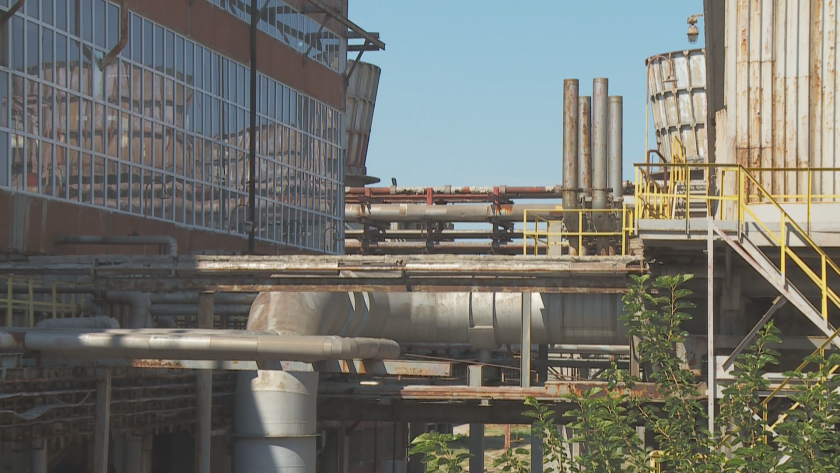Natural gas crisis: Industries shut down for lack of fuel

The biggest industrial enterprises affected by the surge in natural gas prices in Bulgaria are the plants in the chemical and glass manufacturing industries, as well as those in metallurgy.
In the only fertilisers manufacturing plant in the country, which produces ammonia, production was forced to stop and 61 workers have already been laid off. What do the big industrialists and representatives of the medium-sized business offer to survive in this situation?
The fertilizers manufacturing plant in Dimitrovgrad is one of the largest employers in the region. Natural gas is not only an energy carrier used to operate the capacities in it, but is also the main raw material for ammonia production.
"We need 12,100 megawatt-hours per day, which at a price of about 300 BGN, means more than 3,600,000 including VAT, or more than 120 million per month," said Miroslav Ivanov.
"We cannot work with less consumption, we cannot get 15 percent less natural gas, because then the installations have to stop," explained Stefan Dimitrov, CEO of Neochim.
The control room, from where all ammonia production is managed, typically employs 12 people. At the moment, there is no one because production has ceased at this stage. Some employees are on leave and the others have been reassigned to other activities.
This year the planned repairs started earlier than planned.
"Our plans were to continue our production in August as a result of the uncertainty of what is happening with energy prices, we have been forced to and have laid off 61 people. At the moment, the staff is 641, which is nearly 10 percent," said Stefan Dimitrov, Neochim's CEO.
According to the company's management, state compensation similar to the electricity scheme will only help to retain jobs, but not to make investments. The general solution, according to them, is to sign long-term contracts for at least a year ahead or renew supplies under existing ones with Gazprom Export. Another alternative could be supplies from Algeria or LNG contracts. Small enterprises also offer a solution.
"Our first need is to make clear whether there will be gas or not, by when and at what price, and second - if we have to re-equip, to ease all actions and measures for the rapid installation or regularisation of the installations," said Nikolay Zhekov, owner of a jam making workshop.
And while the jam making factory in Stryama can switch to another fuel, this is impossible in the plant in Dimitrovgrad. Therefore, they are waiting for specific decisions from the state next week, when a meeting with experts will take place.
Get the latest news wherever you are!
Follow us on
Facebook
and
Instagram
Follow BNT’s YouTube channel
You can now also watch us on
TikTok
Find us on
Google News























